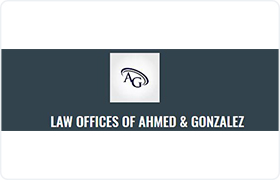Bronx Felony Lawyer, New York
Sponsored Law Firm
-
 x
x

Click For More Info:
-
Law Offices of Ahmed & Gonzalez
1424 Zerega Ave Bronx, NY 10462» view mapCriminal Defense Your Strategic Partner
Law Offices of Ahmed & Gonzalez has been advising on a variety of Criminal Law matters and are involved in some of the most complex criminal matters.
800-923-7501
George A. Vomvolakis
✓ VERIFIEDIf you have been charged with a crime in New York City, Westchester or Long Island you need an attorney who is well versed in local laws and knows how... (more)
Ronald Steven Nir
✓ VERIFIEDRonald Nir has represented individuals and corporations in Criminal Cases for more than 30 years. He has tried to completion well over 250 felony a... (more)
Nicholas Gregory Kaizer
✓ VERIFIEDNicholas Kaizer is a nationally -recognized expert in criminal defense, who has appeared in numerous courts around the country. He has lectured attorn... (more)
Joseph A. Lobosco
David M. Colgan
Edward Richard Dudley
Michael Lewis Marley
FREE CONSULTATION
CONTACT Cesar Gonzalez Jr. Bronx, NY
Cesar Gonzalez Jr. Bronx, NY Practice AreasExpertise
Practice AreasExpertise




